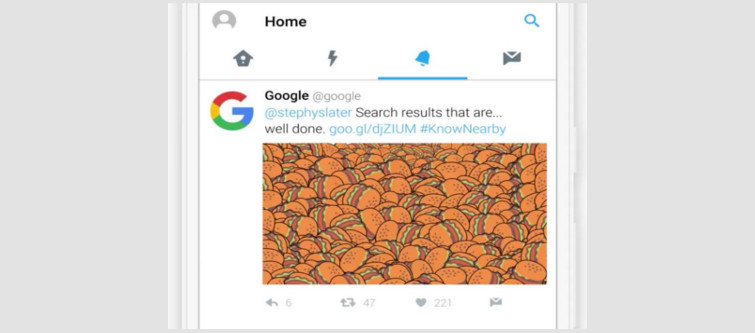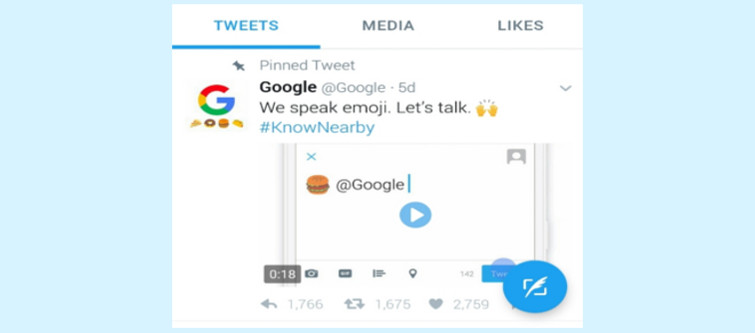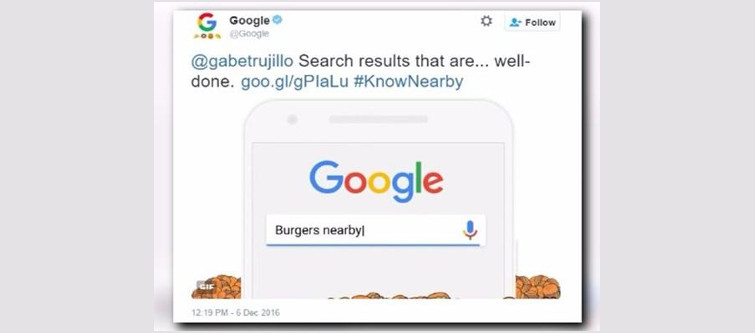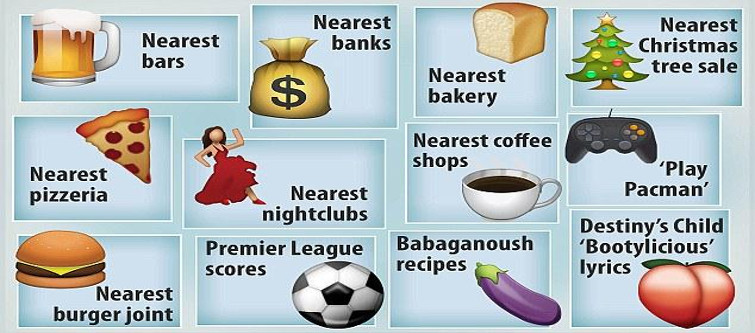
Google, a pioneering name in the field of search engine optimization is always doing things smartly and in an innovative manner to optimize the search results performance. The company is continuously bringing major refinements in search engine results query by introducing new features, algorithms, and other such efforts. The search engine giant has made another great effort in improvising the search results by incorporating the use of emojis as per an official announcement that was done on 6th December, 2016.
Google is now trying to make a major overhaul in the search engine optimization techniques by replacing the keyword phrases with the emojis. This amazing cool way to search nearby eateries and other attractions can be done by sending an emoji to the Twitter account. The user just needs to send an emoji to their @google Twitter account handle for getting associated search results. Check out this image that shows the announcement of this latest emoji based search feature from Google Twitter handle.

This is certainly a big news for the food industry as the Google emoji results work best with the various food items. Although, it works with other non-food emojis also but it generates only little in-jokes which are referred as “Easter eggs”. These Twitter-based emoji responses are instant in nature and are available in the form of a gif, a quick quip or a link to the local search results.
Say for example, if you want to find the burger eatery in your area, all you need to do is just tweet the burger emoji to @Google and it will come out with the search listings of all the nearby restaurants with the related map details.

This will help you in finding the list of popular burger joints that could be a great idea for having a lunch. However, this Google search feature does not work with burger emoji-only but you can also try out a wide range of food emojis like ramen, tacos, pizza, cake and other food items.
Besides this, Google has also taught some interesting things to its Twitter bot and has interpreted them in a humorous way. For example, the Google emoji search feature responds to the very rude aubergine emoji with the words: “You were looking for babaganoush recipes right? Here’s a few: https://goo.gl/EQvyMm”
This emoji based Google search feature on Twitter is presently applicable for around 200 emojis to provide better non-text search results. Check out some of the emojis that are mentioned below and their meanings in the search engine optimization terminology.

Similarly, it responds to the other such emojis in a very interesting manner. For instance, sending a video game emoji to the Google Twitter handle allows users to play the game of Pacman. While including a peach in the tweet will land you to the lyrics of Destiny’s Child song “Bootylicious” along with the words “Can you handle this?”
Besides, providing the search facility for food emojis, this new feature is useful in more than one way. It can help you locate the nearby places of recreation, amusement, and sports based on the emojis used. For example, tweeting the dancing lady emoji can provide you directions to the nearest nightclubs for partying harder. Similarly, sending a football emoji will provide you quick information about latest Barclays Premier League results. Thus, Google can improve the local SEO services for your company by utilizing the #KnowNearby hashtag for better performance on location based results.
This emoji based search feature is the latest arsenal in the search engine optimization strategies by Google that can optimize the performance of your company to a great extent. You can also utilize this new feature to improve the mobile SEO results for better conversions and product sales.
Start exploring this new addition in the SEO services from Google and enhance the productivity and performance of your business without any trouble. It is definitely a great way to enhance your local SEO services results for increased online visibility and presence. Go grab your chance to improve your business performance with this advanced search engine optimization feature from Google.








